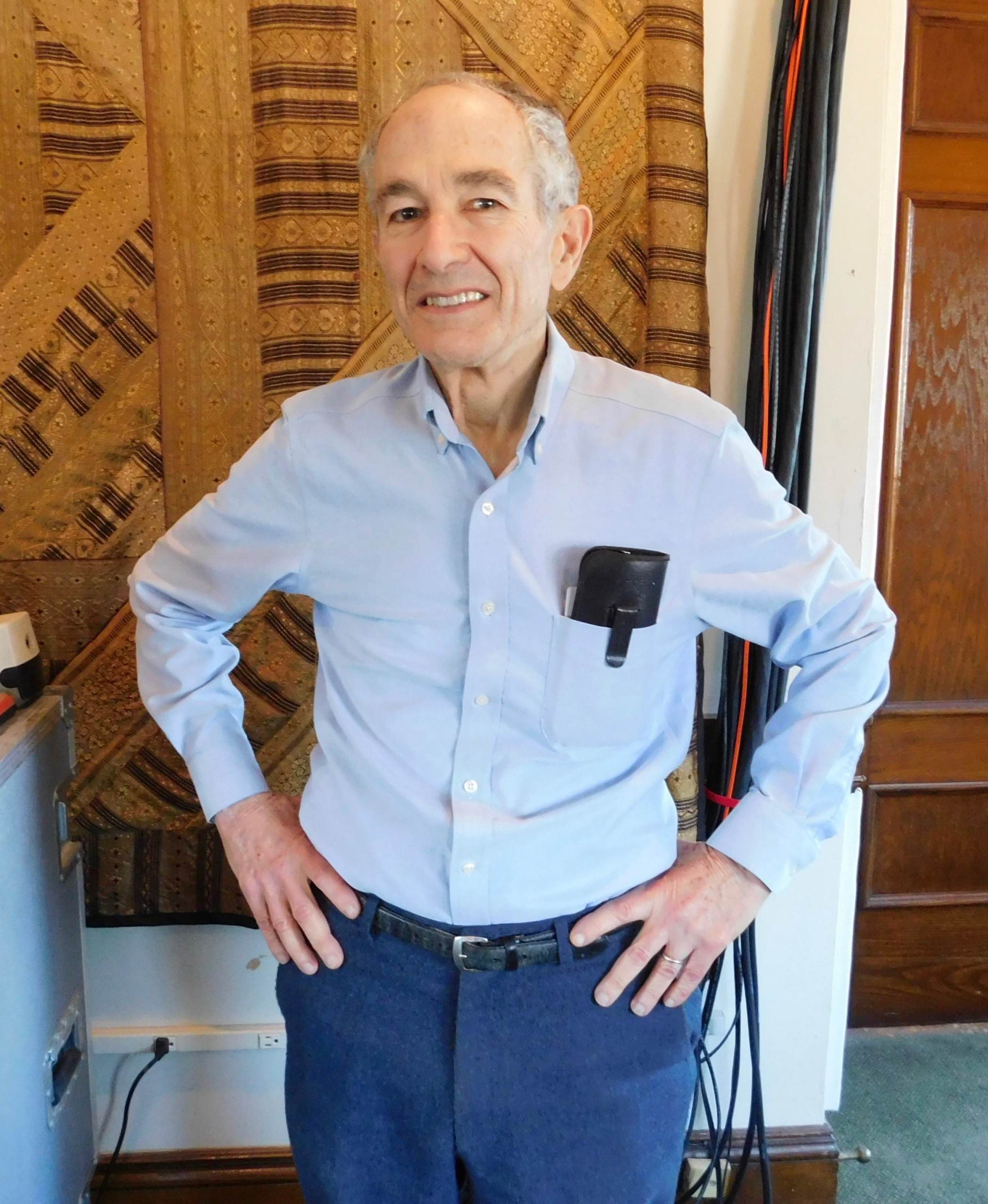 Why do people write music? If you explore the motives of today’s composers, you will probably uncover a sizable sampling of answers. Some composers write primarily to sell, some chart new paths with technically innovative compositions, and others compose to commemorate a person or event in history. And, there are composers like Samuel “Skip” Livingston, who write for one reason: the joy of hearing and performing music.
Why do people write music? If you explore the motives of today’s composers, you will probably uncover a sizable sampling of answers. Some composers write primarily to sell, some chart new paths with technically innovative compositions, and others compose to commemorate a person or event in history. And, there are composers like Samuel “Skip” Livingston, who write for one reason: the joy of hearing and performing music.
This past weekend, I sat in on a recording session at Futura Productions in Boston. After waking up bright and early at 4am and taking the two-hour trek to Futura, I arrived, bright-eyed and coffee in hand, at the studio hall. Job for the day: Get to know Skip and his latest project, learn about the PARMA recording process, and enjoy some fantastic music.
 After meeting Skip, the production team, and the session musicians, I settled in with yet another mug of coffee and watched the process commence. About a dozen takes in, I started noticing a pattern. If a particular measure seemed tricky, Skip would ask the performers, “could that be played by an amateur?” If the answer was no, he made changes. If adjustments could be made to the score to improve the sound, he adjusted without hesitation. Changes were made with care and precision. John, our engineer, joked when Skip added staccato articulation to a phrase in his woodwind trio, The Old Man is Dancing, “we’re dotting our i’s and our quarter notes.”
After meeting Skip, the production team, and the session musicians, I settled in with yet another mug of coffee and watched the process commence. About a dozen takes in, I started noticing a pattern. If a particular measure seemed tricky, Skip would ask the performers, “could that be played by an amateur?” If the answer was no, he made changes. If adjustments could be made to the score to improve the sound, he adjusted without hesitation. Changes were made with care and precision. John, our engineer, joked when Skip added staccato articulation to a phrase in his woodwind trio, The Old Man is Dancing, “we’re dotting our i’s and our quarter notes.”
Later that day, during lunch I asked Skip what his hopes were for his album. His answer? “I want people to listen to my music and enjoy it, play it and enjoy it. I want everyone playing the piece to enjoy it.” When he showed me his score for Quiet Summer Night, written for string quartet and solo clarinet, he explained that he strove to equally highlight every instrument. He emphasized the second violin and viola sections, which often have uninteresting parts in orchestral and chamber music (as somebody who has performed as a second violinist, I appreciated this). As Skip said, he wanted every instrumentalist to enjoy the piece. He wrote with great care to make sure that every section was enjoyable, regardless of the instrument or the performer. I know I spent the entire session nodding along to the rich, flowing melodies of each piece.
As we wrapped up the session and said our farewells, I overheard the flutist telling Skip how much she appreciated the care that he had put into the writing of each section. Did Skip achieve this joy of listening and performing that he strove for? So, I’d say the consensus for the day was a resounding “yes.”
We hope you enjoy as well when this collection comes out in November!
Guest Post by Marketing Intern, Emily Garcia



